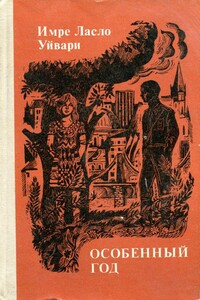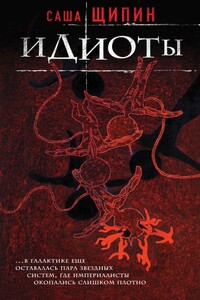36 Arguments for the Existence of God - [32]
Gideon’s intimations were putting the finishing touches to the day’s discombobulations. It was after midnight, they were sliding into yet another day, and exhaustion fell on Cass with a perceptible thud.
“What do you mean, the grim statistics?”
“Nobody’s ever completed a dissertation under Klapper.”
“What do you mean? What happens to them? Does he ask them to leave?”
“No, I’ve never known him to ask someone to leave-once, that is, he’s chosen you. He subjects us to tests of his own devising. You may not even realize you’re being tested until it’s over. He’s got his own pedagogical methods. You have to submit to them. It’s not easy. Believe me, I’ve been with him twelve years, and I still don’t find it easy. But if you pass, then Jonas will always be forbearing with you. I wouldn’t say that he’s slow to anger-well, you witnessed that for yourself-but that sort of grace that you also witnessed is characteristic of Jonas. If he takes you back in, you’re one of us.”
Cass absorbed this information as best he could, knowing that more was being given to him than he could understand at the moment.
“I’ve been with Jonas for longer than anyone, and you can always come to me when you’re in doubt, although you’ll find that Jonas is relatively accessible. But there are times when he isn’t, especially when the next phase in his thinking is being worked out, which can be cataclysmic- the paradox shifts.”
“What happens to his students, if they never get their doctorates?”
“They leave, for one reason or another. It’s always a terrible ordeal for Jonas.”
“But you’re not planning to be a graduate student for the rest of your life, are you?”
Gideon laughed. He had a surprising laugh. There were recessed places in him where the infantile had pooled, and his laugh was yet another of them. It was a high-pitched giggle, gleeful and a little slurpy.
“Certainly not! I’m not lying to Lizzie when I tell her that I’m not leaving without my degree! I’ve sunk twelve years into this. I intend to leave Jonas with his imprimatur stamped on my accursed forehead!”
Gideon Raven was at least half a foot shorter than Cass, and he took strides disproportionately long compared with his height. This gave him a bobbling locomotion, his round head springing like a pigeon’s.
They walked down a few steps to enter the bar. There appeared to be no windows, and the gloom was lying heavy on everything. As Cass’s eyes adjusted, he saw a long freestanding bar up front, a few authentic working-class types sitting immobile and silent, and booths toward the back. Behind the bar there were yellowing posters of 1950s pin-up girls. The bartender looked as if he must have hung them up himself decades ago, when he would already have been an old lech.
Gideon went to get a pitcher, and Cass sank down at a sticky booth. Rousing from his mind any bits that were still rousable, he tried to sort out the items of information he had gathered today. They added up to ten:
The next assigned book for the seminar was Aristotle’s Poetics.
His long experience with Cass here, Jesse there may have had something to do with The View from Nowhere.
Gideon Raven was a hell of a nice guy.
Gideon’s marriage to Lizzie had problems.
Jonas Elijah Klapper did not like Darwin’s theory of evolution.
Jonas Elijah Klapper believed that much of what passes for science is scientism.
None of Jonas Elijah Klapper’s graduate students had completed their doctorates.
When Jonas Elijah Klapper was testing a graduate student, one didn’t necessarily know it until it was over (if then).
Once one was chosen by Jonas Elijah Klapper, one would not be exiled.
He, Cass Seltzer, would not be exiled.
Gideon came back with a pitcher of beer, two mugs, and several shots of tequila, and when he had sorted them out and sat down, Cass asked him, “What exactly is scientism?”
Gideon drained his mug and chased it with a tequila before he answered.
“Scientism is the dogma of our day. It’s the sacred superstition of the smart set that savors its skepticism. It’s the product of the deification of the stolid men of science, so that the arrogance of the illiterati knows no bounds. More particularly, it’s the view that science is the final arbiter on all questions, on even the question of what are the questions. Science has wrested the questions of the deepest meaning of humanity out of the humanities and is delivering pat little answers to all our quandaries.”
“And much of what passes for science is scientism.”
“Exactly.”
“But a lot of what passes for science really is science.”
“No doubt. But I wouldn’t go emphasizing that point in front of Jonas if I were you.”
“What’s he got against science?”
“The same thing that he’s got against Great Britain.”
“What’s wrong with Great Britain?”
“They don’t get Jonas Elijah Klapper.”
“The whole country?”
Gideon might have considered the question rhetorical, since he didn’t let it interrupt his drinking. He drank with an extraordinary thirst. Cass tried to keep up, which brought him quickly to the point of wondering what would happen if, theoretically, he tried to stand.

Честно говоря, я всегда удивляюсь и радуюсь, узнав, что мои нехитрые истории, изданные смелыми издателями, вызывают интерес. А кто-то даже перечитывает их. Четыре книги – «Песня длиной в жизнь», «Хлеб-с-солью-и-пылью», «В городе Белой Вороны» и «Бочка счастья» были награждены вашим вниманием. И мне говорят: «Пиши. Пиши еще».

В книге рассказывается история главного героя, который сталкивается с различными проблемами и препятствиями на протяжении всего своего путешествия. По пути он встречает множество второстепенных персонажей, которые играют важные роли в истории. Благодаря опыту главного героя книга исследует такие темы, как любовь, потеря, надежда и стойкость. По мере того, как главный герой преодолевает свои трудности, он усваивает ценные уроки жизни и растет как личность.

В книге рассказывается история главного героя, который сталкивается с различными проблемами и препятствиями на протяжении всего своего путешествия. По пути он встречает множество второстепенных персонажей, которые играют важные роли в истории. Благодаря опыту главного героя книга исследует такие темы, как любовь, потеря, надежда и стойкость. По мере того, как главный герой преодолевает свои трудности, он усваивает ценные уроки жизни и растет как личность.

Настоящая книга целиком посвящена будням современной венгерской Народной армии. В романе «Особенный год» автор рассказывает о событиях одного года из жизни стрелковой роты, повествует о том, как формируются характеры солдат, как складывается коллектив. Повседневный ратный труд небольшого, но сплоченного воинского коллектива предстает перед читателем нелегким, но важным и полезным. И. Уйвари, сам опытный офицер-воспитатель, со знанием дела пишет о жизни и службе венгерских воинов, показывает суровую романтику армейских будней. Книга рассчитана на широкий круг читателей.

Боги катаются на лыжах, пришельцы работают в бизнес-центрах, а люди ищут потерянный рай — в офисах, похожих на пещеры с сокровищами, в космосе или просто в своих снах. В мире рассказов Саши Щипина правду сложно отделить от вымысла, но сказочные декорации часто скрывают за собой печальную реальность. Герои Щипина продолжают верить в чудо — пусть даже в собственных глазах они выглядят полными идиотами.

Роман «Деревянные волки» — произведение, которое сработано на стыке реализма и мистики. Но все же, оно настолько заземлено тонкостями реальных событий, что без особого труда можно поверить в существование невидимого волка, от имени которого происходит повествование, который «охраняет» главного героя, передвигаясь за ним во времени и пространстве. Этот особый взгляд с неопределенной точки придает обыденным события (рождение, любовь, смерть) необъяснимый колорит — и уже не удивляют рассказы о том, что после смерти мы некоторое время можем видеть себя со стороны и очень многое понимать совсем по-другому.